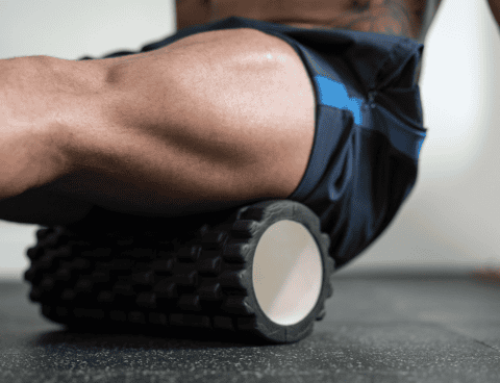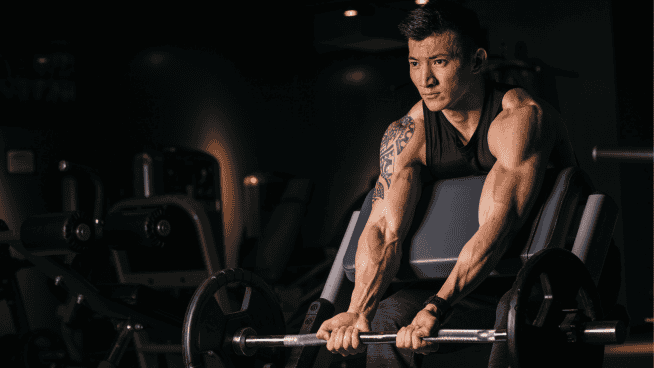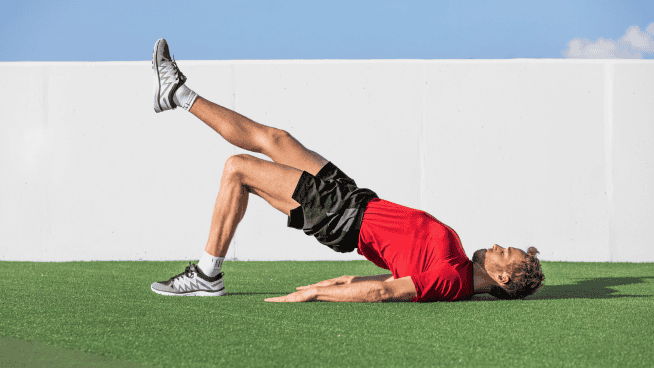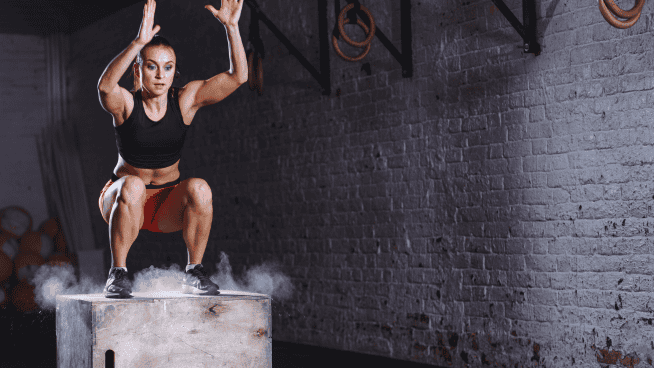![]()
When I tell people I’m a strength and conditioning coach, they often say, “Oh, so you’re a trainer?” They’re surprised to learn there are actually significant differences between a personal trainer and strength and conditioning coach.
When people ask me how to choose a trainer, I first try to sort out what they want to accomplish. Are they serious athletes looking to improve their sports performance, or are they looking for a someone to help them come up with a general fitness plan?
To help figure out what and who best fits your needs, let’s go over each type.
Personal Trainer
- Ideally, he or she has a bachelor’s degree in a fitness field, but this isn’t always a requirement.
- Should have a certification from one or more organizations such as ACE, NASM, NSCA or AFAA.
- Generally works with everyday health-conscious people.
- May teach general fitness classes.
Strength & Conditioning Coach
- Has a bachelor’s degree, probably in sports medicine, exercise science, kinesiology or exercise physiology.
- Has experience working with athletes individually and/or in team settings.
- Often times, but not always, certified through the National Strength and Conditioning Association as a CSCS. Other certifications include NASM, CSCCA and USAW.
- Works primarily with athletes and other high-performance individuals, but also capable of training general fitness clients.
Based on this information, you can decide whether a personal trainer or a strength coach is the best fit for you. However, simply having a certification doesn’t guarantee that the personal trainer is qualified or will fit your needs. So, always do your research beforehand, asking the following questions.
Questions to Ask
What’s your educational background?
Check to see if he or she has a degree in a fitness field. A degree is a good indication that the individual didn’t just pick up training or coaching as a hobby, and has invested significant time in the field.
What are your certifications and experience?
Check to see if the individual is certified; however, sometimes you may find a strength coach with years of experience who opts to not have or keep up with their certification. In this instance, focus on their experience rather than a certification. Simply having a certification does not guarantee that a coach is any good.
What type of individuals do you work with?
Learn about the kinds of people the coach or trainer specializes in working with. If you’re an athlete, look for someone who works with athletes.
What are some of your success stories?
Ask for examples of how they’ve helped someone improve. Did a particular athlete experience great results and improve on the field, or did an individual completely transform his or her body in a reasonably short amount of time?
Do you participate in continuing education?
Check to see if they travel to conferences and other continuing education events in their field. Also, check to see if they have any mentors whom they regularly converse with.
Once you ask these questions, vet the individual online. Coaches often have a website showcasing their achievements. Also, they may write articles and create videos for websites like STACK.com, which might provide insight into their coaching style and prove they’re reputable in the field.
You are ultimately looking for a solid track record and attention to detail. If you do your due diligence, you should have little trouble finding a highly experienced person who will give you the tools you need to help you reach your goals and realize your potential.
[cf]skyword_tracking_tag[/cf]RECOMMENDED FOR YOU
MOST POPULAR
![]()
When I tell people I’m a strength and conditioning coach, they often say, “Oh, so you’re a trainer?” They’re surprised to learn there are actually significant differences between a personal trainer and strength and conditioning coach.
When people ask me how to choose a trainer, I first try to sort out what they want to accomplish. Are they serious athletes looking to improve their sports performance, or are they looking for a someone to help them come up with a general fitness plan?
To help figure out what and who best fits your needs, let’s go over each type.
Personal Trainer
- Ideally, he or she has a bachelor’s degree in a fitness field, but this isn’t always a requirement.
- Should have a certification from one or more organizations such as ACE, NASM, NSCA or AFAA.
- Generally works with everyday health-conscious people.
- May teach general fitness classes.
Strength & Conditioning Coach
- Has a bachelor’s degree, probably in sports medicine, exercise science, kinesiology or exercise physiology.
- Has experience working with athletes individually and/or in team settings.
- Often times, but not always, certified through the National Strength and Conditioning Association as a CSCS. Other certifications include NASM, CSCCA and USAW.
- Works primarily with athletes and other high-performance individuals, but also capable of training general fitness clients.
Based on this information, you can decide whether a personal trainer or a strength coach is the best fit for you. However, simply having a certification doesn’t guarantee that the personal trainer is qualified or will fit your needs. So, always do your research beforehand, asking the following questions.
Questions to Ask
What’s your educational background?
Check to see if he or she has a degree in a fitness field. A degree is a good indication that the individual didn’t just pick up training or coaching as a hobby, and has invested significant time in the field.
What are your certifications and experience?
Check to see if the individual is certified; however, sometimes you may find a strength coach with years of experience who opts to not have or keep up with their certification. In this instance, focus on their experience rather than a certification. Simply having a certification does not guarantee that a coach is any good.
What type of individuals do you work with?
Learn about the kinds of people the coach or trainer specializes in working with. If you’re an athlete, look for someone who works with athletes.
What are some of your success stories?
Ask for examples of how they’ve helped someone improve. Did a particular athlete experience great results and improve on the field, or did an individual completely transform his or her body in a reasonably short amount of time?
Do you participate in continuing education?
Check to see if they travel to conferences and other continuing education events in their field. Also, check to see if they have any mentors whom they regularly converse with.
Once you ask these questions, vet the individual online. Coaches often have a website showcasing their achievements. Also, they may write articles and create videos for websites like STACK.com, which might provide insight into their coaching style and prove they’re reputable in the field.
You are ultimately looking for a solid track record and attention to detail. If you do your due diligence, you should have little trouble finding a highly experienced person who will give you the tools you need to help you reach your goals and realize your potential.
[cf]skyword_tracking_tag[/cf]









